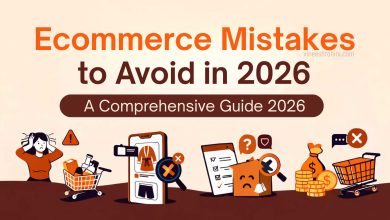Medicine Business – Door-to-Door Online Medicine Delivery Business: Scope, Profit, and Expenses 2024
Medicine Business
In recent years, the healthcare industry has witnessed a significant transformation with the advent of online medicine delivery services. This essay delves into the scope, profitability, and expenses associated with establishing a door-to-door online medicine delivery business. Through comprehensive analysis and case studies, it explores the opportunities and challenges in this burgeoning sector.
The emergence of e-commerce and digital technologies has revolutionized various sectors, including healthcare. Online medicine business have gained traction globally, offering convenience and accessibility to consumers. The concept of door-to-door online medicine delivery further enhances this convenience by bringing pharmaceutical products directly to the customers’ doorsteps. This essay aims to investigate the scope, profit potential, and expenses involved in establishing such a business.
Table of Contents
Scope of Door-to-Door Online Medicine Business
The scope of a door-to-door online medicine delivery business is vast, encompassing various aspects of the healthcare industry and e-commerce.
- Convenience: Consumers, especially those with chronic illnesses or mobility issues, greatly benefit from the convenience of doorstep delivery. They can order prescription medications and over-the-counter drugs from the comfort of their homes, eliminating the need to visit physical pharmacies.
- Market Demand: The demand for online medicine delivery services has surged, driven by factors such as busy lifestyles, increasing healthcare awareness, and the COVID-19 pandemic, which has accelerated the adoption of digital healthcare solutions.
- Geographical Reach: Unlike traditional brick-and-mortar pharmacies, online platforms have the potential to reach a wider geographical area, catering to customers in remote or underserved regions.
- Personalized Healthcare: Through data analytics and artificial intelligence, online platforms can offer personalized recommendations and reminders for medication refills, enhancing the overall customer experience.
Also Read… PMBJP – 50 to 90% Discount On Medicine
Profitability of Door-to-Door Online Medicine Business
While the door-to-door online medicine delivery business presents lucrative opportunities, profitability depends on various factors, including market dynamics, business model, and operational efficiency.
- Revenue Streams: Revenue in this business model primarily comes from the sale of pharmaceutical products, including prescription medications, over-the-counter drugs, and healthcare-related products such as vitamins and supplements.
- Subscription Models: Implementing subscription-based models can provide a steady stream of revenue and ensure customer loyalty. Subscribers may receive discounts, priority delivery, and personalized healthcare services.
- Partnerships and Collaborations: Collaborating with healthcare providers, insurance companies, and pharmaceutical manufacturers can unlock additional revenue streams through partnerships, referral commissions, and bulk purchasing discounts.
- Value-added Services: Offering value-added services such as telemedicine consultations, home healthcare equipment rental, and health insurance brokerage can diversify revenue sources and enhance customer satisfaction.
Expenses in Door-to-Door Online Medicine Delivery Business
While the potential for profitability is significant, establishing and operating a door-to-door online medicine delivery business entails various expenses that must be carefully managed.
- Technology Infrastructure: Building and maintaining a robust online platform, mobile applications, and backend systems require significant investment in technology infrastructure, including servers, software development, and cybersecurity measures.
- Inventory Management: Maintaining an inventory of pharmaceutical products entails procurement costs, storage expenses, and inventory management software. Ensuring compliance with regulatory requirements adds to the operational costs.
- Logistics and Delivery: Door-to-door delivery involves logistics expenses such as vehicle maintenance, fuel costs, and hiring delivery personnel. Optimizing delivery routes and employing tracking systems are essential to minimize costs and enhance efficiency.
- Regulatory Compliance: Compliance with healthcare regulations, licensing requirements, and data privacy laws incurs legal and administrative expenses. Regular audits, quality assurance measures, and staff training are essential to ensure regulatory compliance.
- Marketing and Customer Acquisition: Marketing expenses, including digital advertising, social media campaigns, and promotions, are necessary to attract customers and build brand awareness in a competitive market.
Conclusion
In conclusion, the door-to-door online medicine delivery business presents vast opportunities for entrepreneurs in the evolving landscape of healthcare and e-commerce. With the increasing demand for convenience and accessibility in pharmaceutical services, there is a significant scope for growth and profitability in this sector. However, success requires careful planning, strategic partnerships, and efficient management of expenses to navigate the challenges and capitalize on the opportunities in this dynamic market.
Visit Netwale : No 1 Digital Products Selling Website



